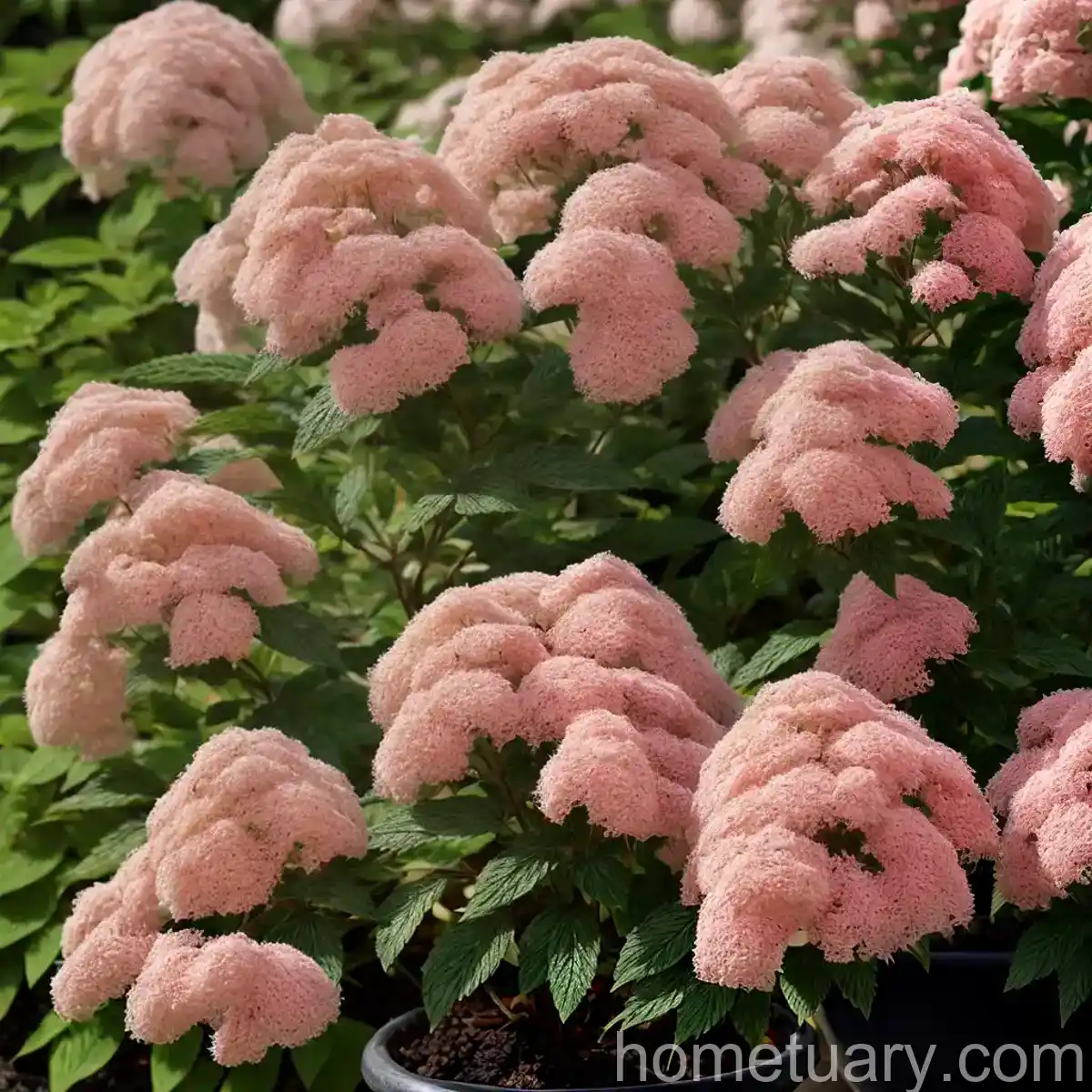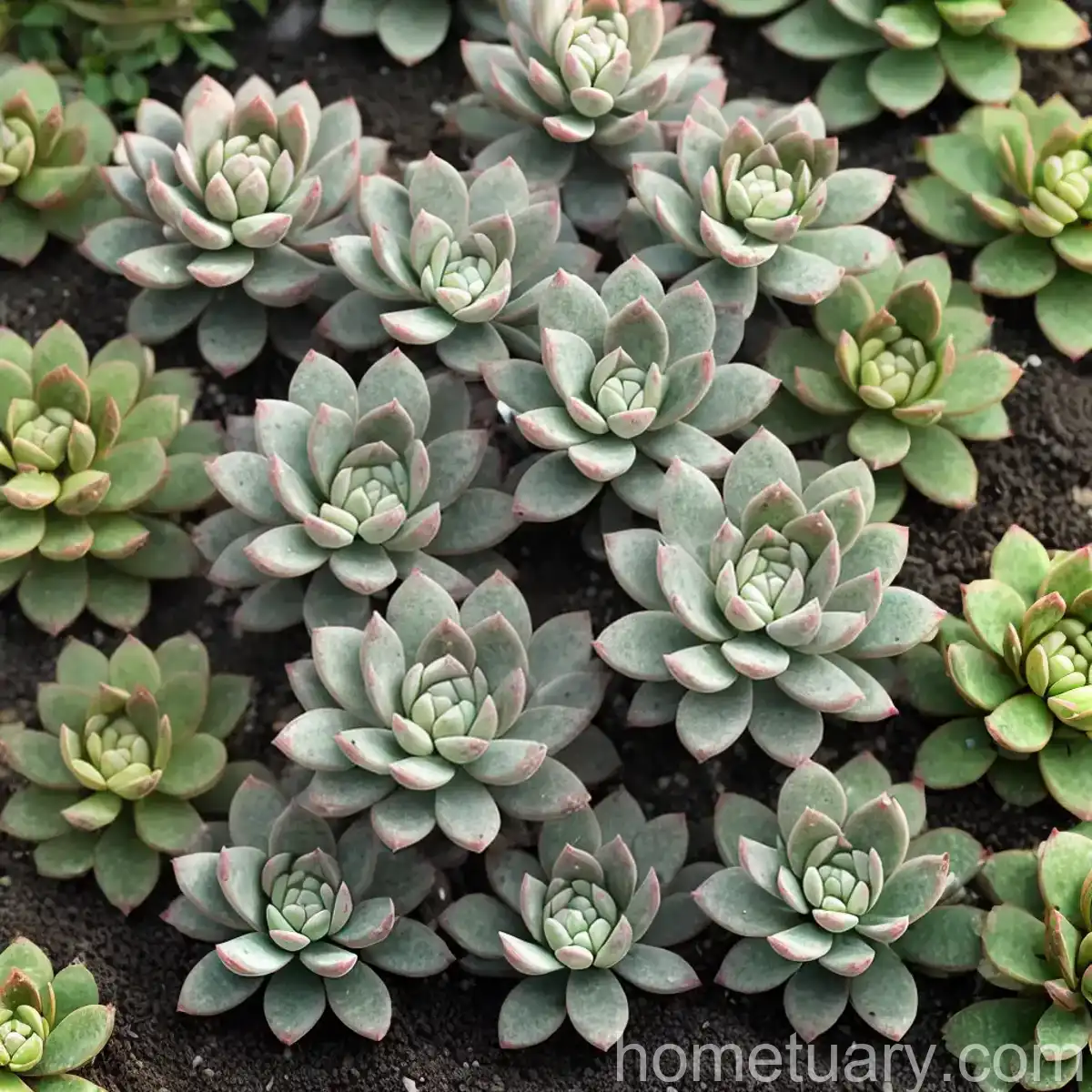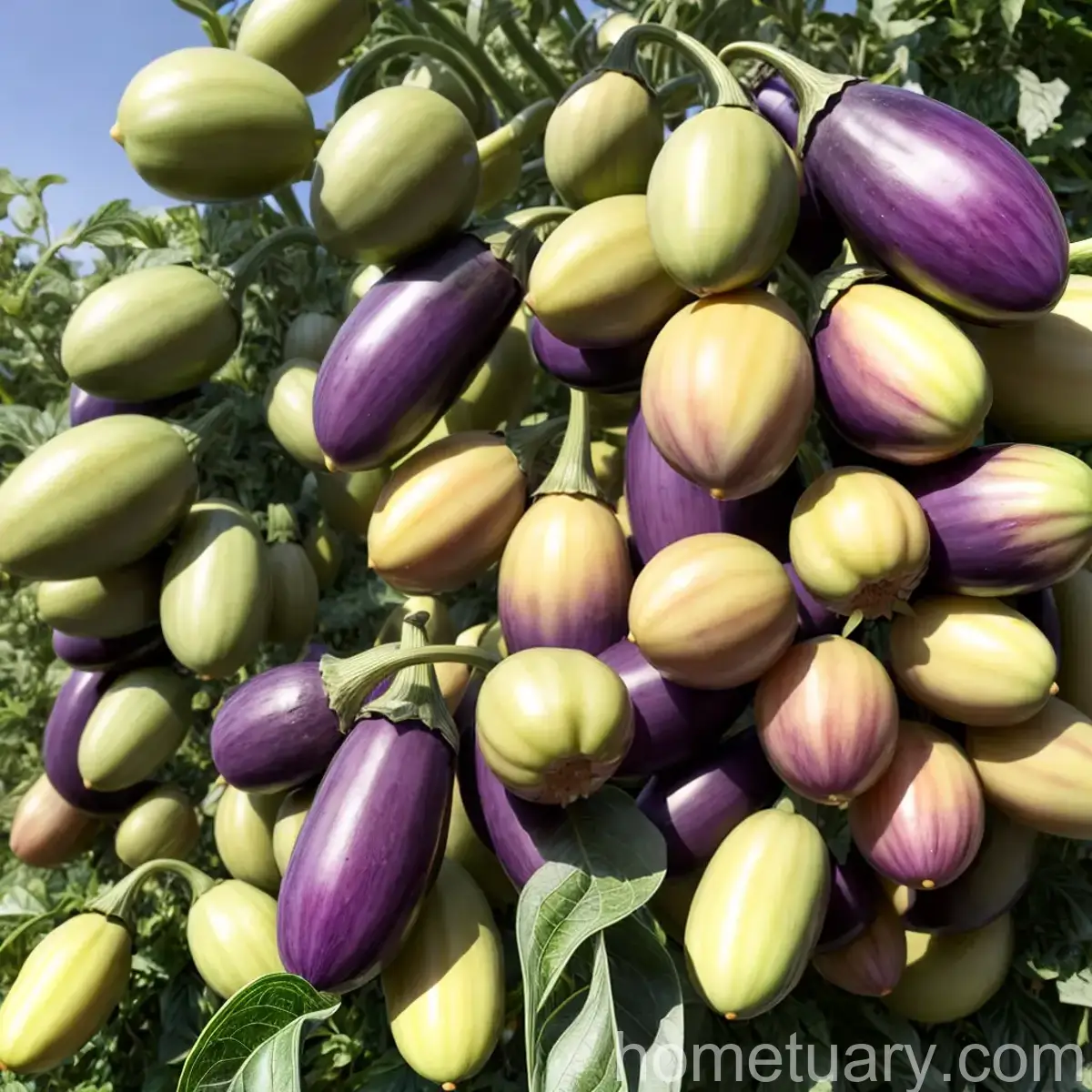All About Eggplant (Solanum melongena ‘Aswad’)
Eggplant, scientifically known as Solanum melongena ‘Aswad’, is a versatile and nutritious vegetable that is widely used in various culinary traditions around the world. In this comprehensive guide, we will explore everything you need to know about eggplant, from its cultural significance to its cultivation, care, and culinary uses.
What is Eggplant?
Eggplant, also known as aubergine, brinjal, or Solanum melongena, is a species of nightshade grown for its edible fruit. The plant is native to the Indian subcontinent and is believed to have been cultivated for over 4,000 years. The eggplant fruit is botanically classified as a berry and comes in a variety of shapes, sizes, and colors, ranging from small, elongated varieties to large, round ones.
Key Takeaways – Eggplant (Solanum melongena ‘Aswad’)
Before delving into the details of eggplant cultivation and care, let’s take a quick look at the key takeaways for Solanum melongena ‘Aswad’:
- Excellent nutritional value, rich in fiber, vitamins, and minerals.
- Diverse varieties offering different flavors, textures, and cooking properties.
- Health benefits including improved heart health and weight management.
- Requires warm temperatures for optimal growth and fruit development.
- Susceptible to certain pests and diseases, requiring proactive management.
- Can be grown in containers, making it suitable for urban and small-space gardening.
Now let’s explore each aspect of eggplant in detail.
Culture
Understanding the cultural significance of eggplant in various cuisines and traditional practices is essential in appreciating its importance beyond its botanical characteristics. Eggplant holds a prominent place in Mediterranean, Middle Eastern, and South Asian cuisines, where it is used in a wide array of dishes, ranging from dips and spreads to stews and casseroles. The deep, rich flavors of eggplant make it a versatile ingredient that adds a distinctive taste and texture to culinary creations.
Uses
The culinary uses of eggplant are diverse and expansive, making it a beloved ingredient in various global cuisines. Some common uses of eggplant include:
- Grilled and Roasted: Eggplant slices or whole fruits can be grilled or roasted to enhance their smoky flavor and tender texture.
- Stir-fries and Curries: Diced or sliced eggplant is a common addition to stir-fries and curries, adding a unique creamy texture to the dishes.
- Dips and Spreads: Eggplant is often used to make creamy dips and spreads such as baba ganoush and melitzanosalata.
- Baked and Stuffed: Large eggplants can be hollowed out and filled with various ingredients before being baked to perfection.
- Pickled and Preserved: In some cultures, eggplant is pickled or preserved to enjoy its flavors year-round.
Water
Proper watering is crucial for the successful cultivation of eggplants. While eggplants require consistent moisture, they are susceptible to waterlogging, which can lead to root rot and other issues. Therefore, it is essential to find a balance in watering practices to ensure optimal growth and fruit development.
- Watering Tips:
- Water deeply once or twice a week, providing sufficient moisture to penetrate the root zone.
- Avoid frequent shallow watering, as this can lead to weak and shallow root systems.
- Monitor the soil moisture to prevent water stress, especially during hot and dry periods.
- Mulching can help retain soil moisture and reduce the frequency of watering.
Sunlight
Like many fruiting plants, eggplants require ample sunlight to thrive and produce a bountiful harvest. A minimum of 6-8 hours of direct sunlight is ideal for promoting healthy growth and fruit development. Insufficient sunlight can result in leggy plants with reduced fruiting capacity.
- Sunlight Requirements:
- Choose a planting location that receives full sun throughout the day.
- In regions with intense heat, consider providing partial shade during the hottest part of the day to prevent sunscald and heat stress.
- Position container-grown eggplants in sunny spots, such as balconies, patios, or rooftop gardens where they can receive adequate sunlight.
Fertilizer
Appropriate fertilization is essential for eggplants to achieve their full potential in terms of growth and fruit production.
- Fertilizer Applications:
- Use a balanced fertilizer with a higher ratio of potassium and phosphorus, such as a 5-10-10 NPK formulation, to promote flowering and fruiting.
- Apply a side dressing of compost or well-decomposed manure around the base of the plants during the growing season to supply organic nutrients.
- Avoid excessive nitrogen, as it can lead to lush vegetative growth at the expense of fruit development.
Soil
The quality and composition of the soil play a significant role in the overall health and productivity of eggplants.
- Soil Requirements:
- Choose well-draining, loamy soil with a slightly acidic to neutral pH (6.0-7.0) for optimal growth.
- Incorporate organic matter such as compost, aged manure, or coconut coir to improve soil structure and fertility.
- Avoid heavy clay soils that can become waterlogged and impede root development.
Pruning
Pruning is an important cultural practice that can help improve the overall vigor and productivity of eggplants.
- Pruning Guidelines:
- Remove the lower leaves and lateral branches to improve air circulation around the plants and reduce the risk of disease.
- Regularly pinch off the terminal growing tips to encourage branching and the development of multiple fruiting stems.
- Prune out any diseased or damaged foliage to prevent the spread of pathogens.
Propagation
Eggplants can be propagated from seeds or cuttings, with each method offering its own benefits and considerations.
Seed Propagation
- Seed Starting:
- Start seeds indoors 6-8 weeks before the last frost date in your region.
- Use seed starting trays or pots filled with a sterile seed starting mix.
- Keep the soil consistently moist and maintain a warm temperature of 70-85°F for optimal germination.
Container
Eggplants are well-suited for container cultivation, making them an excellent choice for urban and small-space gardening.
- Container Considerations:
- Select large, sturdy containers with a minimum diameter of 12-18 inches to accommodate the extensive root system of eggplants.
- Use well-draining potting mix formulated for vegetables and fruits to provide the necessary support and nutrition.
- Position the containers in sunny locations and ensure adequate watering and fertilization for container-grown eggplants.
Popularity
Eggplants enjoy widespread popularity around the world, featuring prominently in various cuisines and culinary traditions. From the Mediterranean’s iconic moussaka to the spicy Indian baingan bharta, eggplant dishes showcase the vegetable’s versatility and adaptability to diverse flavor profiles and cooking methods.
Common Diseases
Eggplants are susceptible to certain diseases that can impact plant health and fruit production. Therefore, proactive management and preventive measures are crucial for disease control.
- Common Eggplant Diseases:
- Verticillium Wilt: A fungal disease that causes wilting, stunting, and yellowing of foliage.
- Fusarium Wilt: Another fungal wilt disease that affects the vascular system, leading to plant decline.
- Early Blight: A fungal disease that causes dark lesions on leaves and stems, eventually leading to defoliation.
- Powdery Mildew: A common fungal disease that appears as a powdery white coating on the foliage.
Disease Diagnosis
Diagnosing eggplant diseases involves carefully inspecting the plant for symptoms and, if necessary, conducting laboratory tests to confirm the presence of specific pathogens.
- Diagnosis and Management:
- Monitor the plants regularly for any changes in foliage color, texture, or growth habits.
- Collect samples of affected plant parts and send them to a diagnostic laboratory for accurate identification of the causal agents.
- Implement cultural and chemical control measures as recommended based on the specific disease diagnosis.
Common Pests
Various insect pests can pose a threat to eggplant cultivation, potentially causing damage to the foliage, stems, and fruits.
- Notable Eggplant Pests:
- Flea Beetles: Small, jumping beetles that feed on eggplant foliage, causing characteristic small holes and damage.
- Aphids: Sap-sucking insects that can cause distortion and yellowing of leaves and transmit viral diseases.
- Cutworms: Larval stage of certain moths that can cut down young seedlings at the soil level.
- Spider Mites: Tiny arachnids that feed on plant juices, leading to stippling and discoloration of leaves.
Pest Control
Integrated pest management (IPM) strategies can effectively minimize pest infestations while minimizing the use of chemical insecticides.
- IPM Approaches:
- Encourage natural predators such as ladybugs, lacewings, and parasitic wasps to control pest populations.
- Use physical barriers such as row covers to prevent pests from accessing the plants.
- Employ insecticidal soaps or neem oil as a targeted and environmentally friendly means of pest control.
Botanist’s Tips
As a plant scientist specializing in eggplant cultivation, I have gathered valuable insights and tips for successful eggplant gardening.
- Expert Recommendations:
- Provide consistent warmth and moisture, as eggplants thrive in favorable growing conditions.
- Mulch around the plants to conserve soil moisture and suppress weed growth.
- Monitor for signs of pest and disease activity and intervene promptly to prevent damage.
Fun Facts
Understanding the unique characteristics and trivia related to eggplants adds a layer of fascination to this beloved vegetable.
- Did You Know?:
- Eggplants belong to the nightshade family, Solanaceae, which also includes tomatoes, potatoes, and bell peppers.
- The skin of eggplants contains a phytonutrient called nasunin, known for its antioxidant properties.
- Eggplants come in a wide range of colors, including purple, white, green, and even striped varieties.
Links to External Resources
For further information on eggplant cultivation, culinary uses, and health benefits, you may find the following resources helpful:
-
The Old Farmer’s Almanac: Offers comprehensive guidance on growing and caring for eggplants in your garden.
-
National Center for Home Food Preservation: Provides detailed instructions for preserving eggplants through canning and pickling.
-
Healthline: Explores the various health benefits of eggplants, including their impact on heart health and weight management.
-
Epicurious: Offers an extensive collection of eggplant recipes from classic baba ghanoush to innovative culinary creations.
-
University of California Agriculture & Natural Resources: Presents a helpful guide to managing pests and diseases in the eggplant garden.
-
Allrecipes: Features a diverse selection of eggplant recipes suitable for various cooking styles and preferences.
In conclusion, eggplant, or Solanum melongena ‘Aswad’, is a remarkable vegetable that offers a delightful combination of culinary versatility, nutritional benefits, and cultural significance. Whether you’re planning to grow your own eggplants or seeking inspiration for incorporating them into your cooking, the insights provided in this guide will equip you with the essential knowledge and resources to make the most of this beloved vegetable.
Remember, as you embark on your eggplant journey, embrace experimentation and creativity in the kitchen, and savor the rich flavors and textures that eggplants have to offer.
References
-
Kumar, V., & Shah, R. (2013). Nutritional value and uses of brinjal (Solanum melongena L.). Chronica Horticulturae, 53(3), 33-36.
-
Prohens, J., & Nuez, F. (2008). Vegetable breeding. Springer Science & Business Media.
-
Benítez, V., & Gutiérrez, A. F. (2019). Eggplant (Solanum melongena L.). In The Solanum melongena Genome (pp. 1-22). Springer, Cham.














